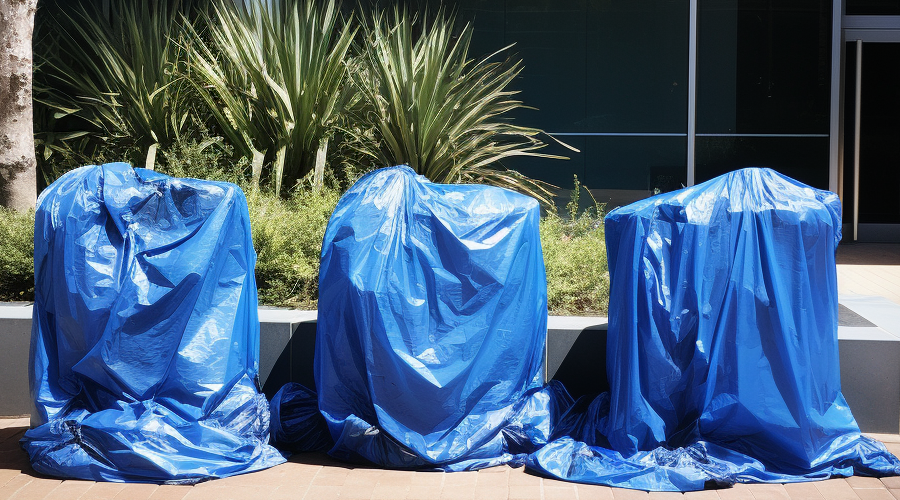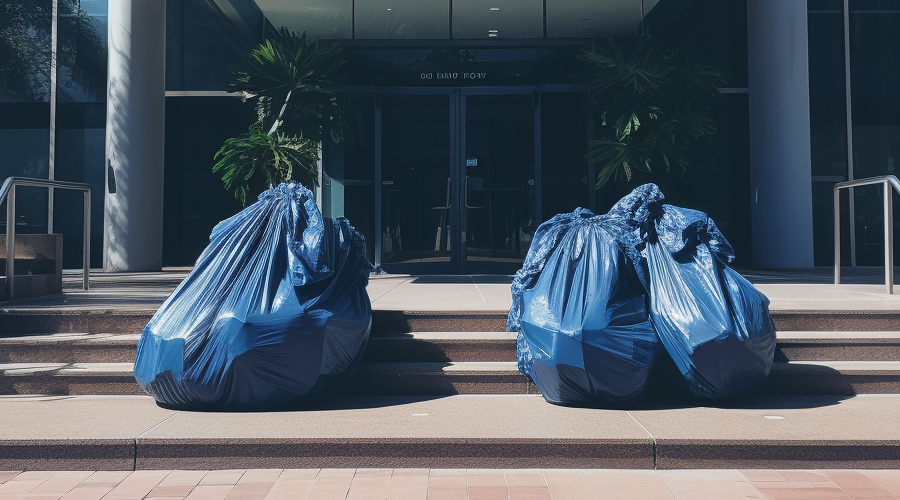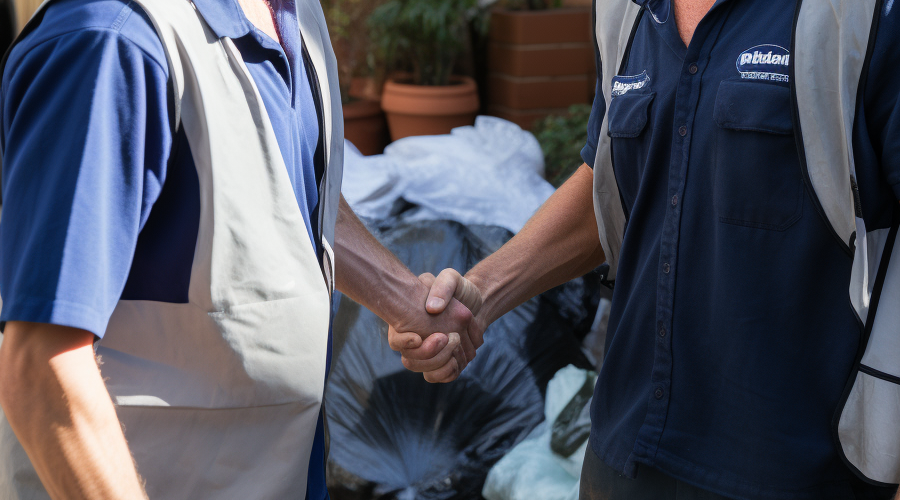Pro Tips to Help Reduce Waste and Save the Planet
A Comprehensive Guide to Waste Reduction
With climate change and pollution threatening our future, it’s more important than ever that we adopt sustainable habits.
The good news is that there are lots of simple ways we can reduce organic waste in our daily lives.
By making a few changes and tips from junk removal professionals, we can keep tons of garbage out of landfills and oceans.
Ready to start taking out the trash for good? Let’s dive in.
Our Throwaway Culture
Here’s the unfortunate truth – our consumer culture of informed decision has become extremely wasteful. The average American throws away around 4.4 pounds of trash per day, adding up to over 250 million tons per year. From plastic packing and food rubbish to broken electronics and fast fashion, so much of what we buy ends up in the bin shortly after. This is polluting our planet, overfilling landfill sites, and harming wildlife.
A huge contributor is single-use plastic. Things like plastic straws, bags, plastic water bottles, and packing get used once and tossed. There are over 5 trillion pieces of plastic debris floating around in our oceans right now. Not only is this an eyesore, but marine animals often mistake these plastic waste for food. Over 100,000 marine mammals die from plastic pollution each year.
Another issue is the immense amount of food rubbish produced around the world. In Australia alone, households throw away up to 4.1 million tonnes of edible food annually. That’s a third of all food bought. All this waste releases methane as it rots in landfills, which is extremely damaging to our atmosphere. Plus, think of all the resources like water and energy that were used to produce food that just ends up in the bin. It’s incredibly wasteful.
Reduce, Reuse, Recycle
The good news is, there are so many ways we can cut down on waste. It just takes making conscientious choices in our daily habits. Follow these tips to be part of the sustainability solution:
Reduce Your Consumption
One of the best things we can do is avoid creating waste in the first place. Here are some strategies to employ:
- Avoid impulse purchases and buy only what you truly need.
- Choose products with minimal, recyclable, or biodegradable cover.
- Buy in bulk to reduce container waste.
- Say no to disposable items like straws, utensils, and coffee cups.
- Bring reusable bags when shopping.
- Ditch bottled water and drinks – carry a reusable bottle instead.
- Buy good quality items built to last, instead of cheaply made disposable goods.
- Borrow, rent, or share items used infrequently rather than buying new.
Reuse What You Can
Often we discard products long before their useful life is up. Get in the habit of reusing items as many times as possible:
- Use rechargeable batteries that can be reused over and over.
- Repair and mend damaged items rather than replacing them.
- Reuse glass jars and containers for food storage.
- Use cloth bags and reusable produce bags.
- Buy used goods and donate or resell what you no longer need.
- Compost food rubbish and carbon footprint to nourish your garden.
Recycle Properly
It turns old materials into new products, saving precious resources. Follow these best practices:
- Learn what can and can’t be recycled in your local area. Not all programs are the same.
- Rinse containers to remove residue before doing it.
- Break down cardboard boxes and flatten plastics into carbon dioxide.
- Keep a bin in your kitchen, office, bathroom, etc. for convenience.
- Bring recyclables to local drop-off depots if curbside isn’t available.
- Choose products in recyclable bags when possible.
Tackle Food Waste
Since food left-overs is a huge source of garbage, it deserves special attention. Try these food-saving tips:
- Only buy what you’re sure you’ll eat. Plan meals ahead.
- Understand date labels – “best before” foods are still safe after.
- Store food properly so it lasts as long as possible.
- Eat leftovers and repurpose scraps into new dishes.
- Freeze, preserve, or can surplus food.
- Turn wilting produce into smoothies and soups.
- Compost food scraps if you can’t eat them.
- Donate unspoiled surplus food to charity.
Be a Conscious Consumer
Voting with our dollars is an effective way to support waste-reducing business practices. We can incentivise sustainability by:
- Choosing products with eco-friendly bags.
- Supporting companies with take-back programs.
- Buying from businesses committed to sustainability.
- Bringing containers to zero-waste shops.
- Boycotting brands that use excessive plastic.
- Writing companies asking them to reduce plastic use.
Talk About It.
An important and easy way to create change is by having conversations. Raise awareness by talking to family, friends, neighbors and co-workers about waste reduction. Share tips, encourage grassroots initiatives in your neighborhood or workplace, and lead by example. Small actions can snowball into significant change.
Take it to the Next Level
Once you’ve mastered the basics, up your game even more with these advanced tactics:
- Go zero waste – try to cut out as much disposable plastic as possible.
- Consider waste when making big purchases like cars, appliances, etc.
- Grow your own food to reduce packaging and food miles.
- Eschew fast fashion for classic, durable clothes.
- Write corporations and government urging them to enact greener policies.
- Support legislation strengthening recycling and sustainability.
- Join or volunteer with an environmental organisation.
Save the Planet as a Community
While personal habits are important, creating systematic change requires community effort. Get involved by:
- Starting a neighborhood zero waste initiative.
- Pushing for better options and programs.
- Organising park or beach clean-up days.
- Urging schools to teach sustainability.
- Demanding companies reduce packaging and recycled materials.
- Advocating for deposits on bottles and cans.
- Supporting bans on problem plastics like straws and bags.
Reducing waste takes effort, but it’s one of the most meaningful household items we can do to protect the planet by reducing greenhouse gases. Our future depends on it. By being mindful consumers, reusing what we can, recycling properly, cutting food waste, and inspiring others, we can make a big environmental impact. Small changes multiplied by millions of people really add up. Together, we can reduce waste and preserve our beautiful planet.
Frequently Asked Questions
What are the main causes of waste?
The main causes of waste are single-use disposable products, plastic packaging, paper, food waste, hazardous waste, planned obsolescence of consumer goods, and lack of adequate recycling systems.
How does reducing waste help the environment?
Reducing waste protects the environment in many ways. It decreases pollution from landfills and incinerators, reduces greenhouse gas emissions, preserves natural resources and wildlife habitats, and keeps our air, water and land cleaner.
What are easy ways for a family to reduce waste?
Easy ways for families to reduce waste include using reusable shopping bags, saying no to straws and disposable utensils, buying in bulk, choosing products with less packaging, recycling properly, turning off water when brushing teeth, composting food scraps, and donating unused items.
How can companies and governments reduce waste?
Companies can reduce waste by eliminating excess packaging, using recyclable or biodegradable materials, starting take-back programs, and designing repairable products. Governments can enact policies like plastic bag bans, bottle deposits, e-waste recycling programs, food waste reduction targets, and mandatory recycled content.
What are zero waste stores?
Zero waste stores aim to eliminate disposable packaging on the products they sell. Customers bring reusable containers and bags to purchase bulk foods, personal care items, household cleaners and more. This hugely cuts down on single-use plastics.
Conclusion
Continue down the path of wastefulness and pollution, or embrace sustainability.
Our planet’s future health now hangs in the balance.
But by shifting our habits and mindsets, we can still turn the tide.
If each of us does our small part day to day, together we can drastically reduce waste.
Through our combined efforts, we can save precious resources, preserve natural habitats, and ensure the survival of species worldwide.
For the wellbeing of this planet we call home, and of generations to come, the time for change is now.
Our world is counting on it. Let’s live up to the challenge and create real environmental change, starting today.



